The woman who lives in six cities
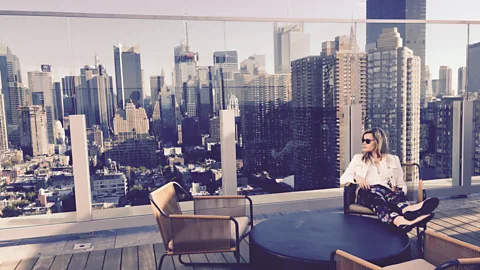 Barbara Fiala
Barbara FialaFor this road warrior, being abroad isn’t travel, it’s a way of life. Here’s how she does it — and how she finds ‘home’.
Road warrior Barbara Fiala is a big believer in routines. Having them helps her survive eight months travelling for work each year.
As the founder of New York-based branding and communications firm Baobab Group, the 34-year-old spends the majority of her life travelling across Europe, collaborating with government officials on their country’s branding strategy or building campaigns for corporate executives in parts of Central Europe.
Fiala’s two-month-long stints visiting clients means she rotates around five or more locales, mostly in Europe. She spends three nights in each city and then starts over for another tour of each. Based in New York, Fiala flies to London, then on to Berlin, Budapest, Warsaw and Tel Aviv — typically in that order. All that moving around is one big reason that familiarity can go a long way when you’re away from home.
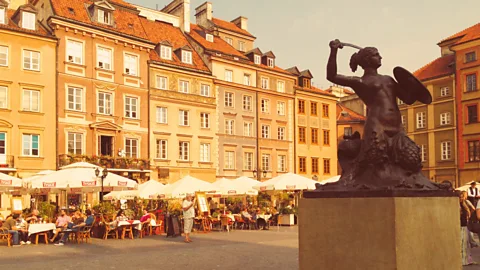 Cameran Ashraf/GettyImages
Cameran Ashraf/GettyImages“You need to introduce small routines and continue to go on with your life while travelling,” Fiala said.
Staying the course
Typically, Fiala arrives at the destination the night before, which allows her to keep her morning routine of exercise and tea with lemon.
“I always try to wake up where I’m going to spend the day,” she said. Typically she’ll run on the treadmill or go for a morning walk if the weather cooperates. “That’s sometimes the only time I realise what city I’m in.”
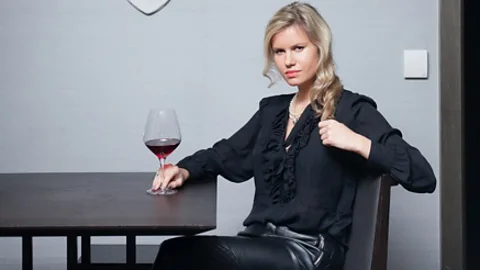 Libor Fojtik
Libor FojtikHer routine includes (mostly) staying in the same places and eating at her stable of favourite restaurants. But each city has its own twist.
In London, Fiala stays with her sister, because “it makes it much more of a familiar feeling,” she said. In Berlin she takes a room at the Soho House, a private club and hotel with plenty of space for drinks with clients. In Tel Aviv, where Fiala lived three years ago before moving to New York, she invites old friends to Minzon for fresh pita sandwiches. In Warsaw and Budapest, she’s more adventurous and tries to stay at new boutique hotels and dine at eateries recommended by local colleagues.
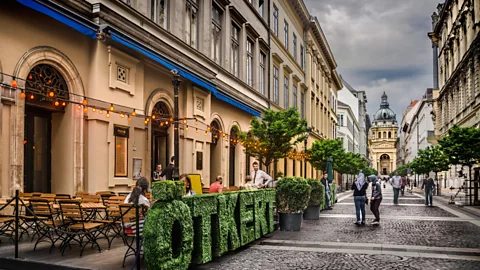 Domingo Leiva Nicolas/Getty Images
Domingo Leiva Nicolas/Getty ImagesBeyond her creature comforts, Fiala also gets on with the basics of life, including taking yoga classes and carving out time to read books.
“Fairly often [business travellers] will be like ‘Let me get through the trip and I’ll read a book or I’ll start my classes’,” Fiala said. “But I’m never waiting for after the trip.”
A typical day
Before all the schmoozing begins, Fiala starts her morning at 6:00 with a workout and then tackling administrative tasks. She answers emails and calls the Prague office, where three of the firm’s 15 employees are located (the others are spread between Warsaw, London and New York). Then she heads out for client meetings.
During business meals, Fiala sticks to whatever appetizers she can eat in just a few bites. “There’s lots of talking, so I do what I call ‘social eating’,” she said.
Fiala says the two-month-long jaunts are necessary because they help to cement relationships. She’s able to meet with clients several times in a row before heading back to New York rather than simply touching base once or twice per year.
A packing regime
With such long periods away from her home, she can’t fit into one carry-on and breaks the golden rule of almost any business traveller. She packs two suitcases, and checks one on each flight while carrying the other.
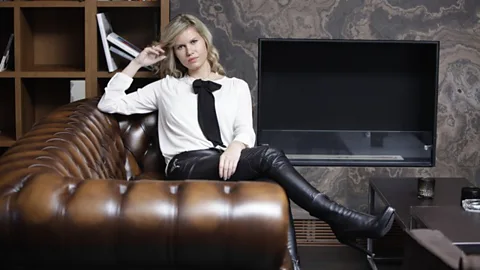 Libor Fotjik
Libor FotjikTaking two suitcases “allows me to still pack enough but keeps me flexible and mobile”, Fiala said. She takes single-coloured wardrobe pieces, to go with her mostly-black wardrobe and plenty of layers, but makes sure not to over-pack in order to leave room for last-minute shopping trips for special events or unexpected weather.
“When I leave New York at the end of February and come back [closer to] May the seasons are different,” Fiala said.
Shifting between cultures
Shifting between different nationalities and attitudes can get tricky but it isn’t a foreign concept for Fiala.
“I grew up in a diplomatic family and I learned from an early age to adapt,” she said. Rather than focus on differences between clients from different countries, she tries to be “perceptive” about their preferred way to communicate.
“I try to be sensitive to the environment and the specific manner in how she or he bonds or creates a relationship,” she said. For example, some clients prefer a more informal relationship and like to brainstorm prior to deciding on a strategy, while others want her to present to them a structured approach.
 Uzi Keren/Getty Images
Uzi Keren/Getty ImagesIn general, London and Berlin business dealings tend to be more structured than interactions in Warsaw, Budapest and Tel Aviv, she said. For outsiders, Warsaw can be especially difficult for business, said Fiala, who recommends first-timers to the city get a local partner to help adapt to the language and business practices. In both Warsaw and Budapest the non-polished façade of the cities can hide some of the charms, while Tel Aviv tends to be more creative and informal.
“Certain cities have a certain kind of energy,” Fiala said.
Staying grounded
Fiala keeps up with associates across the world through Instagram and Twitter, where her handle on both is fittingly @take_it_to_go.
“Zagreb for breakfast, Vienna for lunch, Baku for dinner. Only going beautiful places,” she wrote last fall. But she’s quick to document the downsides: “Yet another 5am with bad coffee. To drink or not to drink. #loungelife #notsoglam”
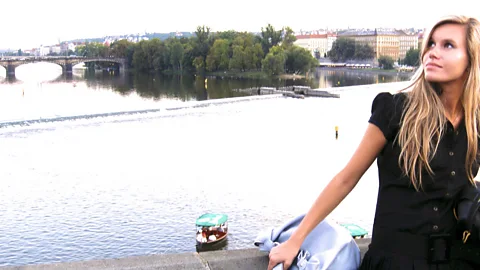 Barbara Fiala
Barbara FialaThe worst part of traveling, she said, is leaving her apartment in the Hell’s Kitchen neighbourhood of Manhattan after her month at home.
“I get into this weird mood the day before, regardless of how many times I travel,” she said.
Long term, as her business evolves, Fiala hopes to spend more time in New York. As she branches into more corporate branding, Fiala plans to cut down her travel to 50% of the time by delegating tasks to local team members. She hopes that will help her feel more rooted in one place, she said.
“As much as you try to make different places feel familiar along the way, it’s always nice to come home,” she said.
